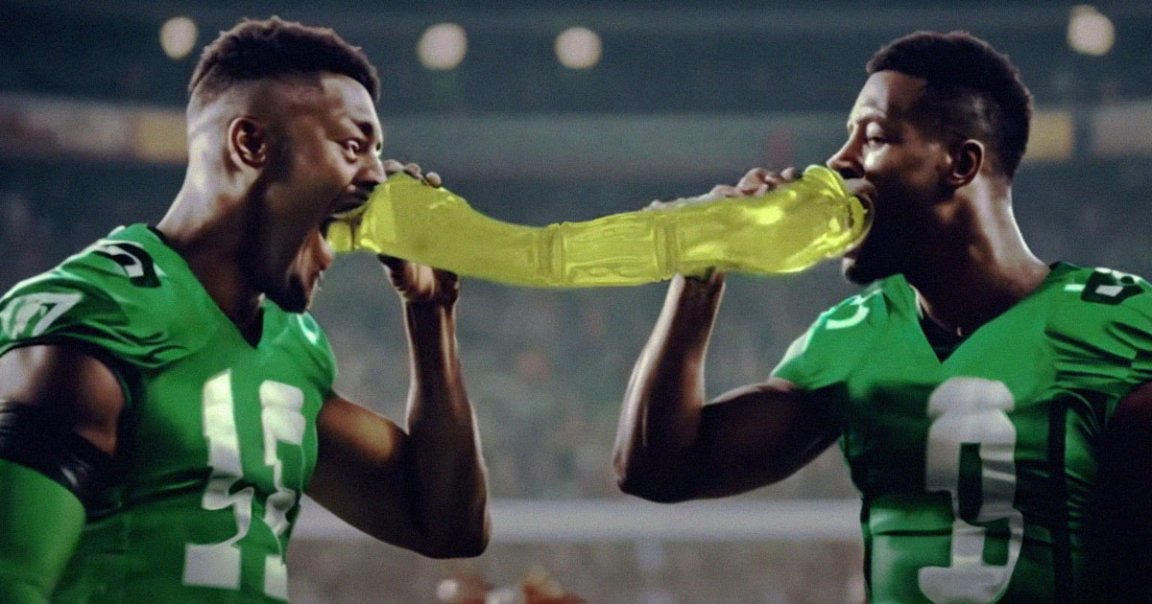
Real Is Fake
This year’s Super Bowl is less than a week away, and advertisers are stumbling over each other to get as much time in the limelight as they can.
Some are jumping the gun and have released their game time commercial early, including the Coca-Cola-owned sports drink brand Bodyarmor — which has used nausea-inducing generative AI to make an arguably lukewarm point about offering its customers a “real” product.
“Electrolytes equal mouth success,” a robotic voiceover says over clips of morphing body parts, a floating radioactive sports drink merging with an athlete’s mouth, and a gigantic pulsating jug of Gatorade that explodes over a sea of undulating faces.
“Artificial flavor, optimized for victory times,” the disembodied voice adds.

Unearthly Valley
The spot, titled “Field of Fake,” is a conspicuous attempt to shoehorn a message about the company’s sports drink offering “real hydration” while also riffing on the trend of stomach-churning AI-generated ads.
The clip was “generated using GenAI video and audio pipeline, finished with traditional VFX and supplemented with machine learning tools,” Bodyarmor brand strategy VP Kristen Rumble told AdAge.
“Ultimately, we said, ‘Okay, what’s, what’s the opposite of real? Artificial,” BodyArmor’s chief marketing officer Tom Gargiulo added. “And what’s the first thing that comes to mind when it comes to artificial? Artificial intelligence.”
It’s far from the first ad to make use of the tech. Who could forget the commercial for a made-up franchise called “Pepperoni Hug Spot” last year, which a pizza enthusiast “definitely wasted three hours of [his] life” on?
Then there was the “AI beer commercial,” which turned heads with a mind-bending rendition of a group of people enjoying some brews in a backyard.
We’re clearly still far from a future in which AI-generated video is indistinguishable from the real thing. But given the tech’s rapid progression, who knows how much longer that’ll be the case.
Reuters reported last year that some of the world’s biggest advertisers are hoping to cut costs and boost productivity with the use of generative AI software.
Until the lines have become completely blurred, we’re bound to see plenty more corporations trying to cash in on the trend — likely with the same unsettlingly familiar results.
More on AI ads: Facebook Approves Disgusting Pro-Anorexia and Drug Ads